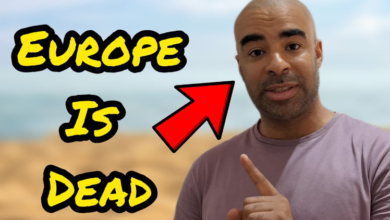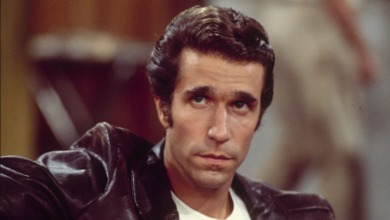
Charles III van het Verenigd Koninkrijk: Een Nieuw Tijdperk
Charles III is the reigning monarch of the United Kingdom. His ascension followed the death of his mother, Queen Elizabeth II.
Born on November 14, 1948, as Charles Philip Arthur George, he became heir apparent at an early age and holds the record for the longest-serving prince of Wales. His royal engagements and charitable work have been at the forefront of his public life.
Charles III’s investments in organic farming and architecture have also garnered attention. Known for his commitment to environmental issues, he advocates for sustainable practices within the UK and beyond. His reign marks a new chapter in the British monarchy, reflecting decades of experience in public service and a dedication to contemporary causes.
Charles Iii’s Ascension
The world watched as Charles III stepped into his new role. This historical moment he marked a new chapter for the United Kingdom.
The Transition Of Power
A smooth transition of power showcases stability within a nation. Following the passing of Queen Elizabeth II, Charles III quickly assumed his responsibilities. Ceremonies were simple yet steeped in tradition, signalling the continuity of the monarchy. Officials made declarations, and symbols of power like the coronation regalia were prepared for the new king.
Public Reception
The ascent of a new monarch stirs mixed emotions. While some citizens viewed Charles III’s ascension as the start of a promising era, others expressed nostalgia. Media coverage was intensive, capturing public opinions through interviews, polls, and social media. Public gatherings became spaces of shared sentiments about the country’s future under Charles III’s reign.
Biography Of Charles Iii
Discover the remarkable journey of Charles III of the United Kingdom. From his royal birth to his ascension to the throne, his biography reveals a life dedicated to service and duty. Explore the milestones that have shaped him as a monarch and a leader.
Early Life And Education
His Royal Highness Prince Charles was born on November 14, 1948. He is the eldest child of Queen Elizabeth II. Charles was a keen student from a young age. He attended Hill House School in London and later the Cheam and Gordonstoun schools, which his father had also attended.
- He was the first heir apparent to earn a university degree.
- 1970 he received a Bachelor of Arts from Trinity College, Cambridge.
- Charles also studied at the University College of Wales in Aberystwyth, learning Welsh history and language.
His education was diverse, reflecting his future role as a sovereign. He values knowledge and understands its power to inspire change and progress.
Military Service And Career
Prince Charles has a distinguished military background. He joined the Royal Air Force and the Royal Navy in 1971, and his training included aviation and naval warfare courses.
| Year | Branch | Achievements |
| 1971-1976 | Royal Navy | Commanded a minehunter |
| 1974 | Royal Air Force | Pilot wings |
Throughout his service, Charles demonstrated leadership and commitment. His time in the armed forces has prepared him for his future role as Commander-in-Chief of the British Armed Forces.
The Prince Of Wales Legacy
Charles III of the United Kingdom, formerly the Prince of Wales, left an enduring legacy. His contributions span multiple realms, and his work extends beyond royal duties. People around the globe applaud his commitment. The prince dedicated his life to serving others. Two areas stand out: his charitable efforts and his green initiatives. Let’s explore these impactful ventures.
Charitable Work And Philanthropy
His Royal Highness championed many causes through his charities. Over the years, he raised millions. These funds empowered young people and transformed lives. His charity, The Prince’s Trust, is a testament to his compassion. Here are a few ways the Trust has made a difference:
- Education: Provided skills and training for the youth.
- Enterprise: Helped start over 125,000 businesses.
- Wellbeing: Supported mental health initiatives.
The prince’s charitable influence also extended to the arts and culture. He sought to preserve heritage and promote the arts, and his passion for building community resilience shone through his actions.
Environmental Advocacy
Early on, Prince Charles advocated for the planet. He understood environmental threats. The prince voiced concerns about climate change and its effects. He saw the need for sustainable living. Through initiatives like The Prince’s Rainforests Project, he took action. The project’s goals were clear:
- To halt rainforest destruction.
- To find practical solutions for deforestation.
- To raise public awareness about environmental issues.
His commitment did not waver over the years. Prince Charles spoke at global events. He engaged with leaders and citizens. His message was always about the Earth’s precarious future. He pushed for change before it was popular. His unyielding advocacy for sustainability reflects his deep sense of duty.
Monarchical Duties And Responsibilities
When we think of Charles III van het Verenigd Koninkrijk, we think of grandeur and tradition. But beyond the pomp and spectacle lies a framework of monarchical duties and responsibilities. These roles are crucial for the functioning of the nation and the Commonwealth. Let’s delve into what it means to wear the crown in today’s world.
Constitutional Role
King Charles III plays a symbolic role in the UK’s constitution. As a constitutional monarch, his responsibilities are steeped in centuries of history yet are largely ceremonial today. Here are some of his critical constitutional duties:
- Opening new Parliament sessions with the Queen’s Speech.
- Granting Royal Assent to laws passed by Parliament.
- Weekly meetings with the Prime Minister are held in private.
State And Commonwealth Affairs
The king’s role extends beyond UK borders, reaching into matters of the Commonwealth. This global network relies on his commitment to:
| Area | Duty |
| International Diplomacy | Hosting state visits and representing the UK abroad. |
| Commonwealth Relations | We are supporting initiatives and attending the Commonwealth Heads of Government Meeting. |
| Charity Work | Patronage of over 600 organizations promoting social causes. |
Modernizing The Monarchy
Charles III leads a centuries-old institution. Keeping it relevant in today’s fast-paced society is a must. The monarchy must evolve, adapting to new norms and technological advances.
The role of the British monarchy is steeped in tradition. Yet, Charles III knows the importance of progress. This calls for adopting new perspectives. He aims to bridge the past with the present.
Tech And Social Media Presence
Modern royalty meets the digital age. By enhancing the monarchy’s online presence, Charles III wants to deepen connections. Social platforms become tools for royal engagements.
- Interactive engagements – Engaging people where they are.
- Constant updates – Sharing the royal work and life.
- Global reach – Connecting with a worldwide audience.
The Royal Family’s Public Image
Charles III van het Verenigd Koninkrijk is known worldwide. The royal family’s image is a mix of mystery and fascination. They are always in the public eye. People look up to them. They respect traditions and bring new ideas. The public forms their opinions in different ways. The media and royal actions both play significant roles.
Media Scrutiny And Pr
The royal family is always under the media’s watch. Every step they take gets noticed. Charles III’s actions lead to many stories. Positive or negative, they shape how people see him. Good PR helps fix mistakes and highlight good deeds. The family uses social media to show their work and life. This gives a friendlier image to the public.
- Media follows their charity work.
- Photographs show family moments.
- Interviews can change opinions.
Balancing Tradition And Modernity
The royals balance old and new ways. It takes work, but it’s essential for staying relevant. Charles III honours past rituals, yet he also embraces today’s world. The family uses technology to connect with young people. They talk about issues like climate change. These actions blend heritage with progress.
- Charles III keeps the monarchy fresh.
- Royals use tech to reach a wider audience
- They show commitment to global issues
The royal family’s image is complex. They work to maintain dignity while being current. Charles III stands out in this. He has years of experience with the public. The family’s rapport with the public evolves Through media, PR and balancing old and new.
Economic Impact Of The New Reign
The ascension of Charles III to the throne of the United Kingdom marks a significant political and economic transition. A new monarch changes tradition, image, and national identity. This ripple effect has the potential to impact the UK’s economy in various ways. Considering tourism and monetary factors, let’s explore how the new reign might influence economic activities.
Tourism And The ‘royal Effect’
The ‘Royal Effect’ speaks to the Royal Family’s unique charm in tourism. With King Charles III’s coronation, the UK expects a visitor surge. Key points include:
- Increased footfall at royal residences.
- Unique coronation memorabilia is boosting retail sales.
- Royal ceremonies and events are sparking global interest.
- Hikes in hotel bookings and related services.
The spotlight on Charles III drives a renewed fascination with British heritage, enhancing tourism’s economic contribution.
Monetary Contributions And Expenses
With any new monarch, financial aspects come under scrutiny. This includes:
| Contributions | Expenses |
| Revenue from the Crown Estate | The Sovereign Grant |
| Charitable endeavours | State ceremonies and security |
| Private estate profits | Maintenance of historical sites |
While the monarchy brings in funds through estates and tourism, it also incurs costs. The nation watches how King Charles III’s reign will balance these aspects.
Challenges And Expectations
Ascending the throne brings challenges and expectations for Charles III of the United Kingdom. Leading a nation with a rich history and tradition, he faces steering the monarchy through modern times. As Charles III takes on his new role, he must address contemporary political issues while maintaining the monarchy’s relevance in a rapidly changing world.
Contemporary Political Issues
King Charles III stepped into a landscape peppered with complex political challenges. Climate change and social inequality stand tall. The king must navigate these sensitive subjects with diplomacy and poise.
- Climate Action: His dedication towards environmental conservation will influence policy and public opinion.
- National Unity: Post-Brexit tensions persist, requiring a unifying figure to maintain stability.
- International Relations: The Commonwealth looks to him for guidance amidst global unrest.
Maintaining Relevance In The 21st Century
In the digital age, the monarchy faces questions about its place in society. The king must find ways to remain significant to his people. His actions and the causes he champions will be vital in achieving this goal.
Innovation in Communication: The monarchy will connect younger audiences by engaging with modern platforms.
Cultural Integration: Promoting diversity and inclusion will endear the monarchy to a broader demographic.
Charitable Work: The monarchy can portray a compassionate image through active participation in philanthropy.
Conclusion
As we reflect on Charles III’s ascendancy to the British throne, we grasp its historical significance. Charles III’s reign marks a new chapter, blending tradition with modernity. His role not only shapes the monarchy’s future but also influences global conversations.
Embracing evolution while honouring the past, King Charles III’s legacy beckons with anticipation, promising a reign defined by duty and innovation.




